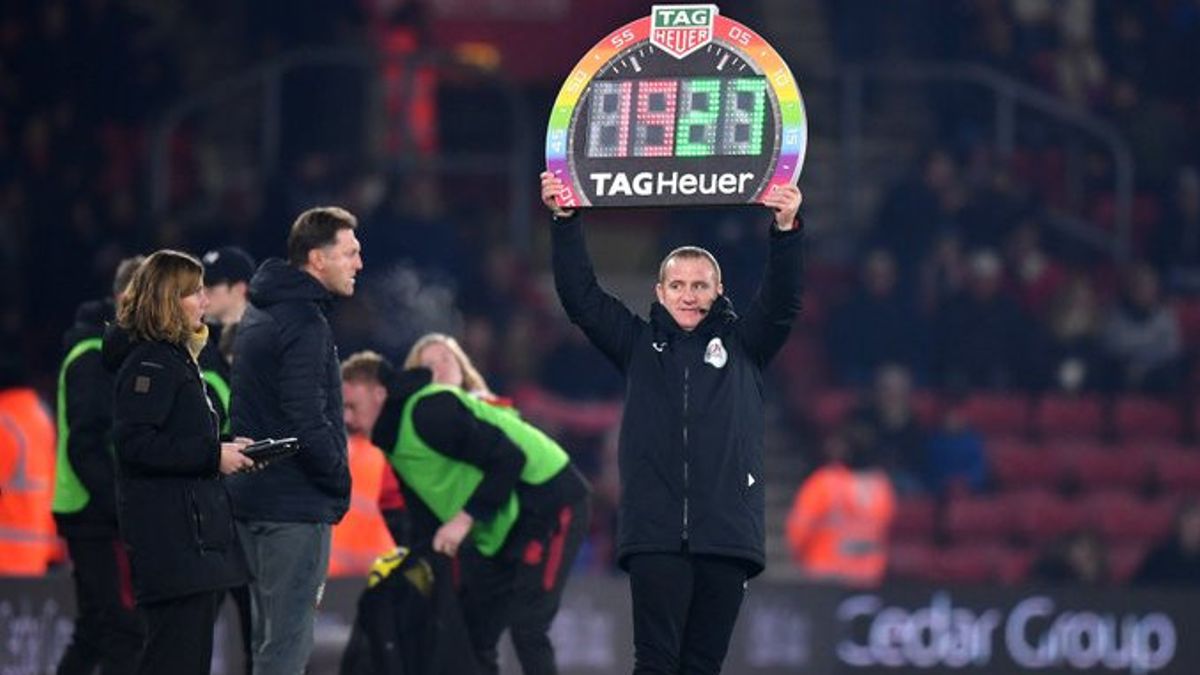JAKARTA - The rules for changing players in soccer return to the original regulations. English Premier League clubs have agreed again to limit the number of substitutions to three slots.
This decision applies to the 2020/21 season competition which is planned to be rolled out from 12 September. Simultaneously, each team is again allowed to register only seven players on the bench for each match.
Reporting from Antara, Friday, August 7, since football restarted amidst the pandemic, the temporary regulation imposed in the midst of an emergency is that substitutions are allowed for up to five slots. This was done to complete the 2019/20 season with a busy schedule of appearances with a distance of 2-4 days between matches.
#PL Clubs also agreed to revert back to using up to three substitute players per match, with a maximum of seven substitutes on the bench. pic.twitter.com/e3Fqtf9QNr
- Premier League (@premierleague) August 6, 2020
In addition, the Premier League announced an agreement regarding a number of changes to the implementation of video assistant referees (VAR) in the 2020/21 season in accordance with the transfer of authority from the International Football Association Board (IFAB) to FIFA.
There are at least five key changes to the implementation of VAR in the 2020/21 English Premier League, namely the first to increase the use of the referee review area (RRA) for decisions regarding goals, red cards and penalty kicks.
Second, violation of goalkeeping rules in penalty kicks, which refers that the goalkeeper's feet must not cross the goal line before the opposing player touches the ball. If that happens and the goalkeeper saves the ball, then VAR must ask for the penalty kick to be repeated.
At the Premier League's Annual General Meeting today, Shareholders agreed to rules relating to VAR and substitute players for the 2020/21 season. Shareholders are unanimously approved the implementation of VAR, in line with the full FIFA VAR protocol pic.twitter.com/tkrZUbv9Y4
- Premier League (@premierleague) August 6, 2020
However, if that happens and the penalty kicks hit the post or deviates from the goal, there is no need for re-execution.
Third, disruption of penalty execution by opposing players, which by law prohibits other players - both colleagues and opponents, apart from the executioner who took the penalty - from being caught with his feet entering the penalty box or bow.
Fourth, the new VAR protocol will certainly not tolerate offside violations.
Fifth, the line judge is instructed to let the game continue if there is an alleged offside with a thin margin and only raise his flag after the opportunity has been completed, whether it is a goal or wasted. If it becomes a goal then the new VAR is asked to act to review the incident in question.
The English, Chinese, Japanese, Arabic, and French versions are automatically generated by the AI. So there may still be inaccuracies in translating, please always see Indonesian as our main language. (system supported by DigitalSiber.id)












